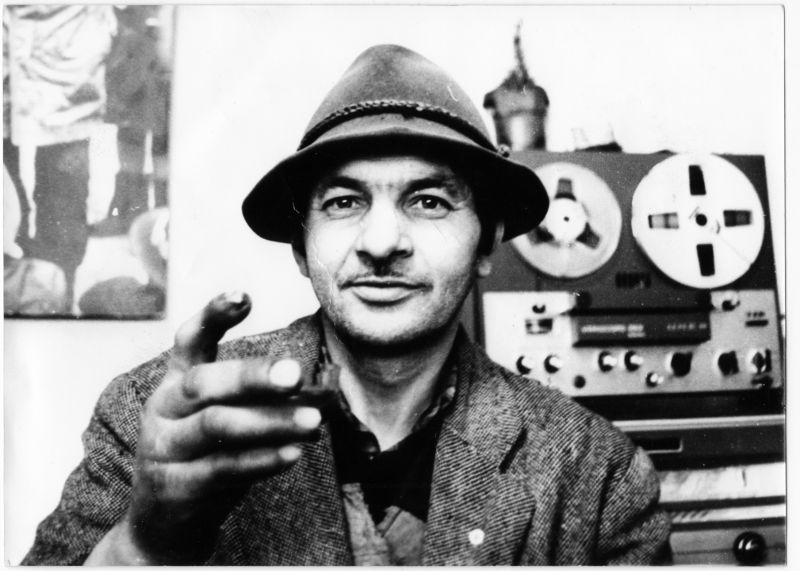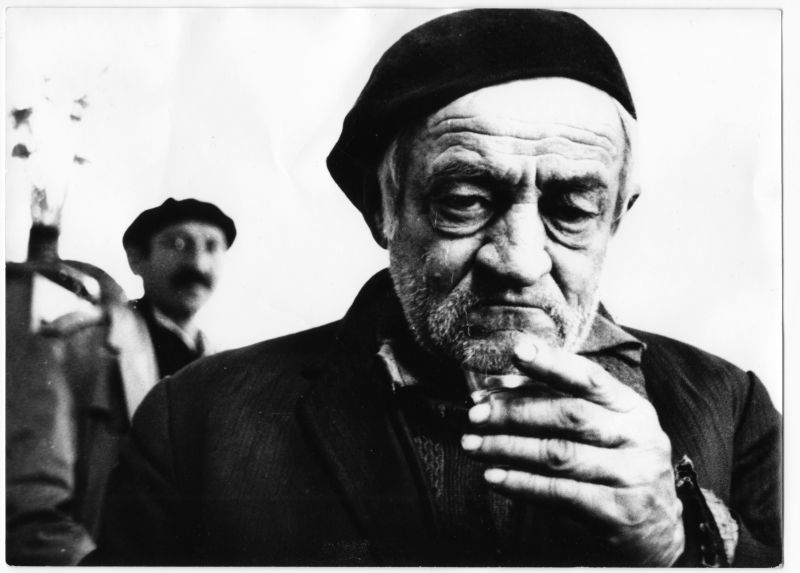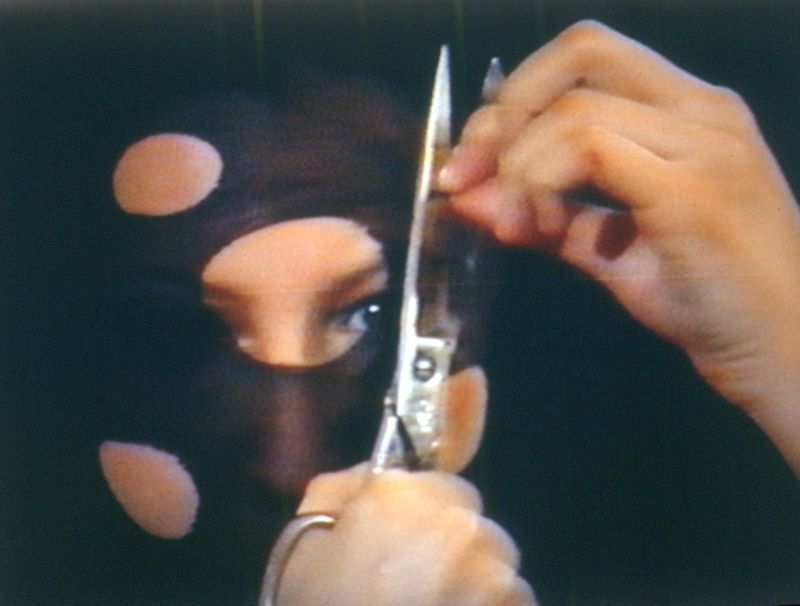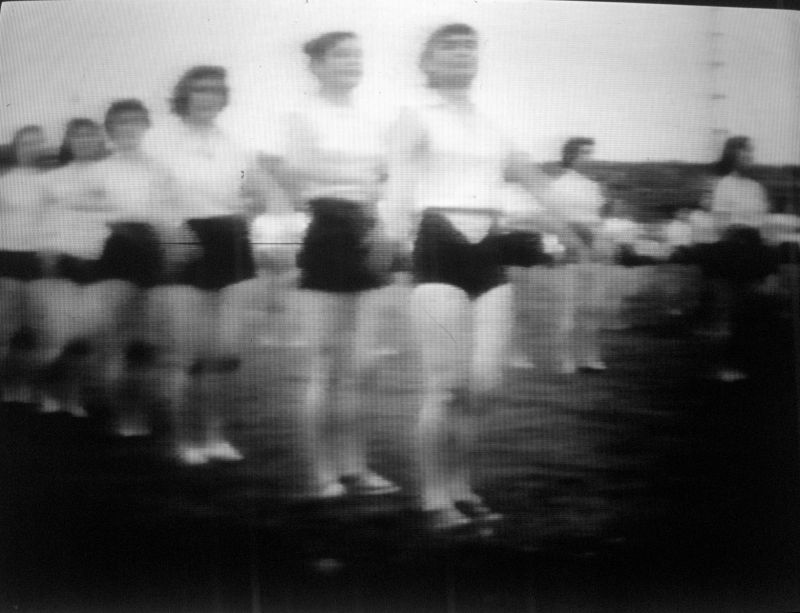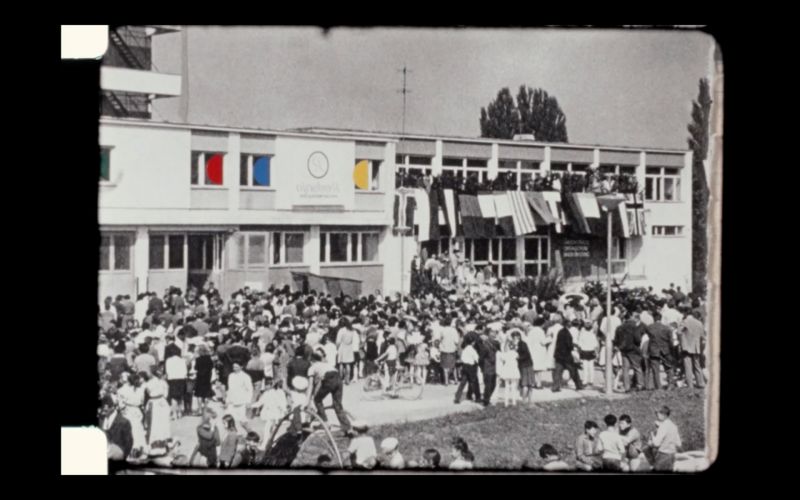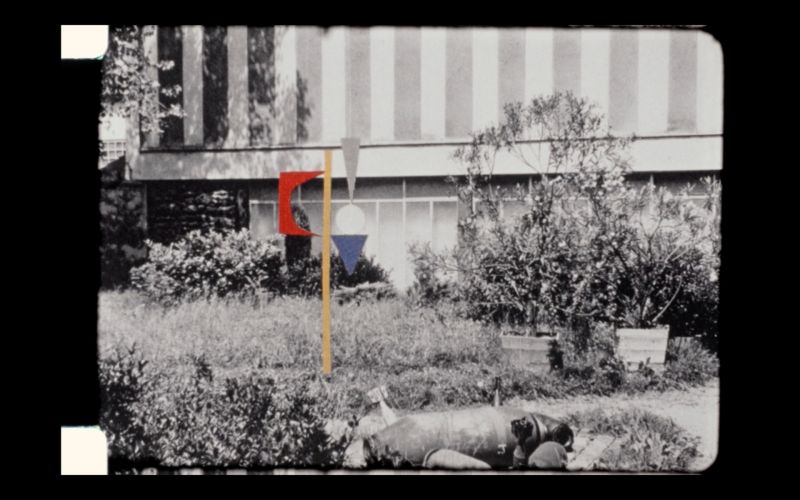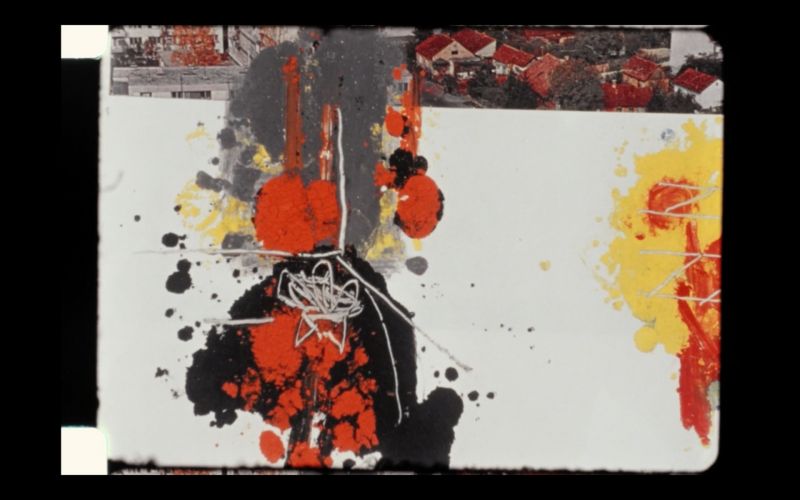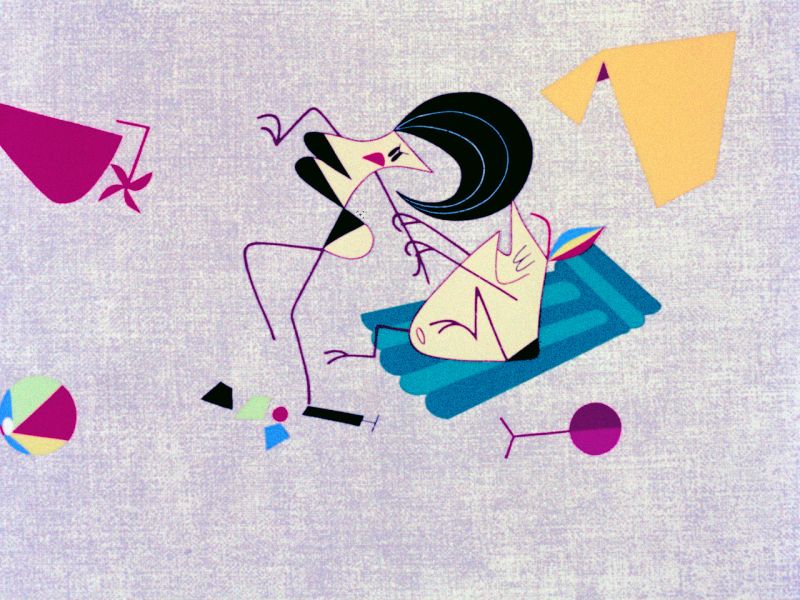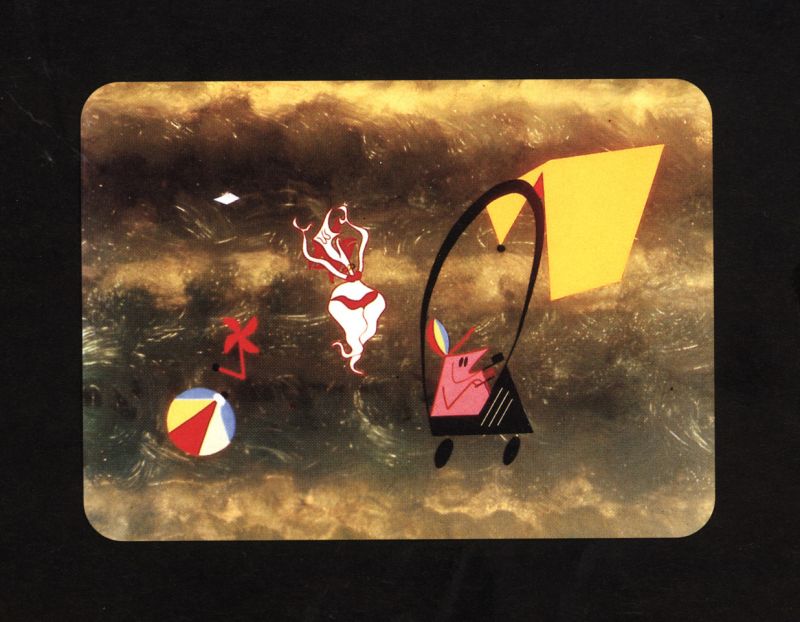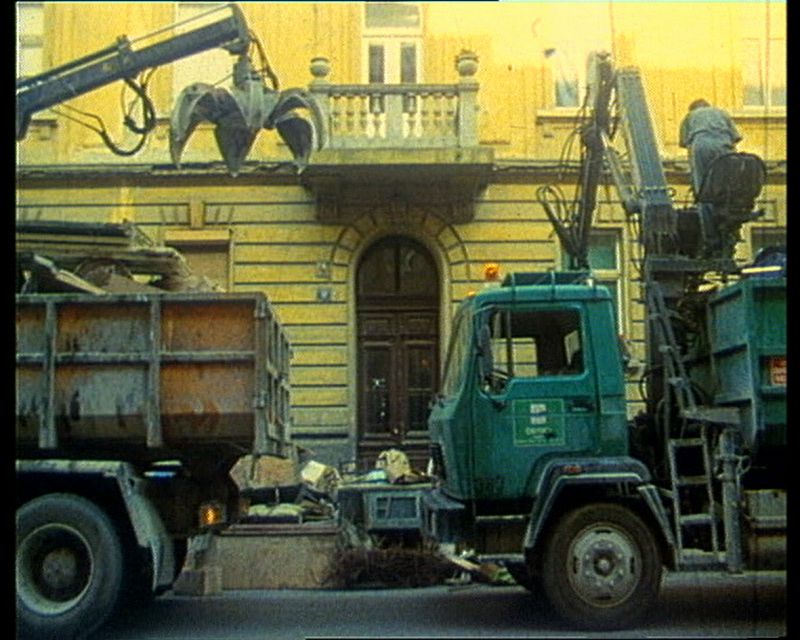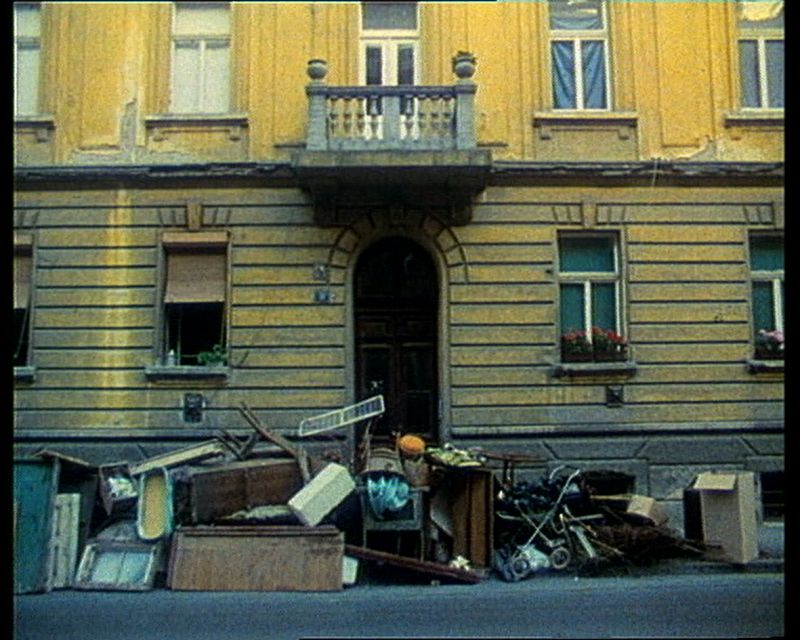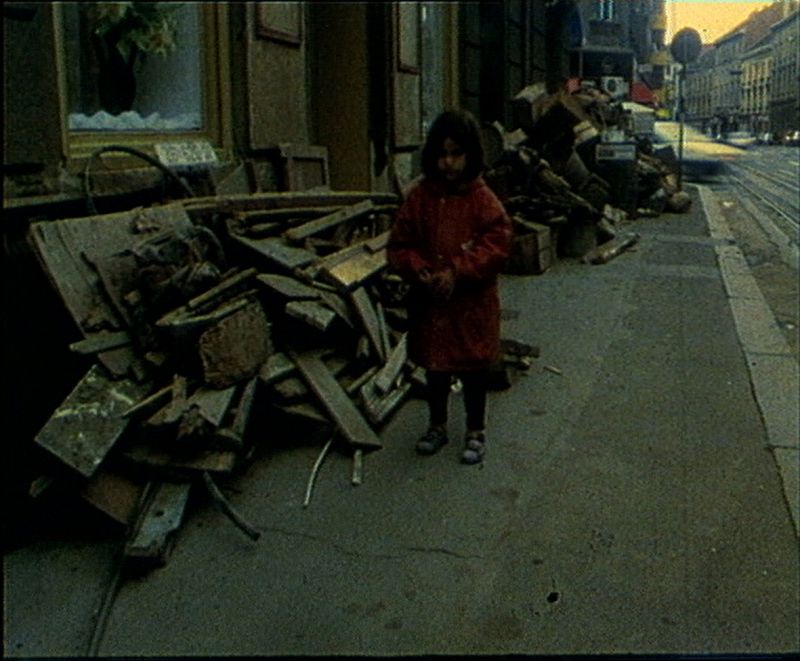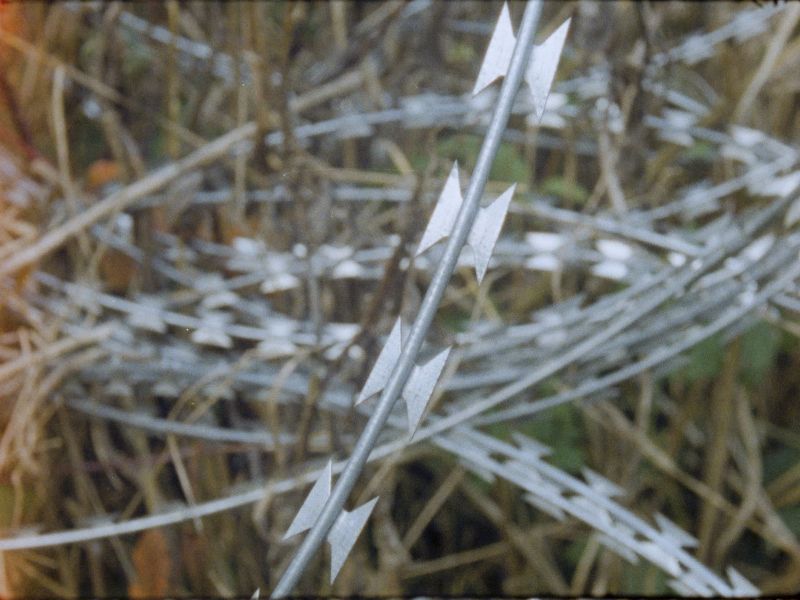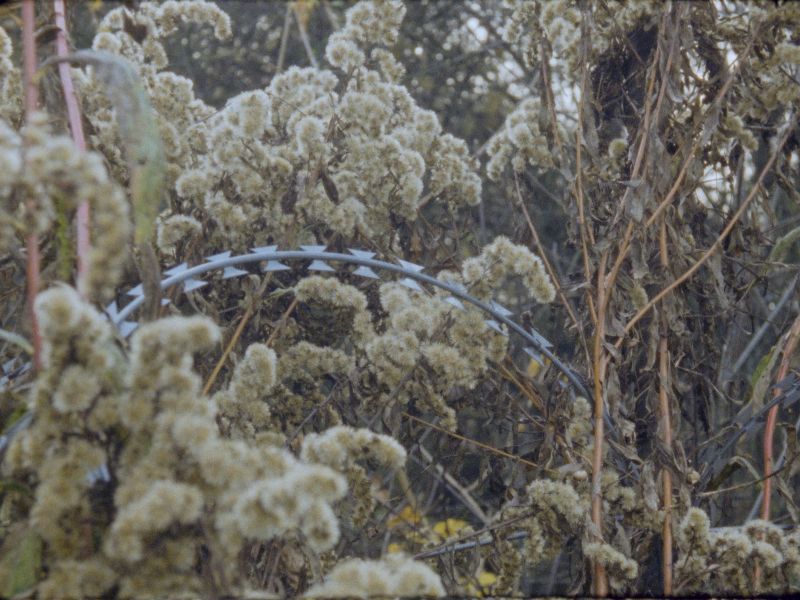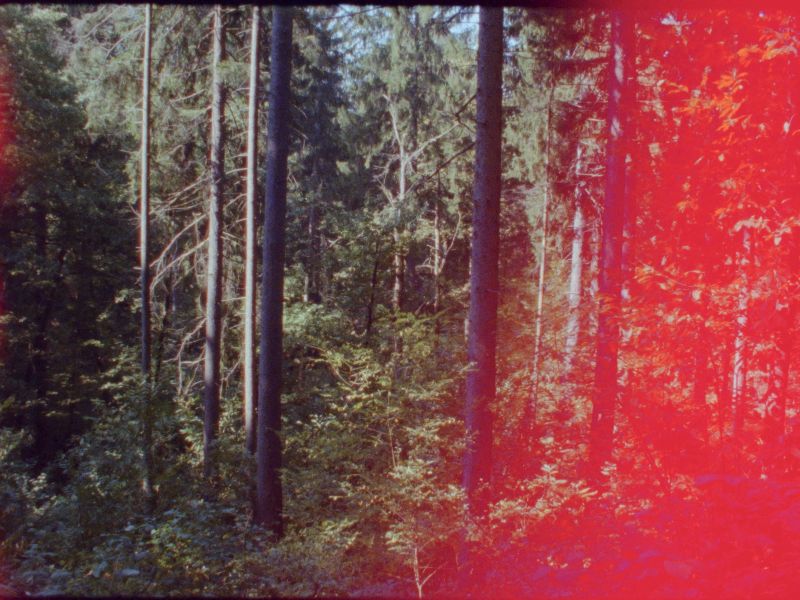LAB 1: Abstract Humanism
LAB 1: Abstract Humanism
Das Programm bietet einen möglichen Zugang zu dem, was als Gegensatzpaar Humanismus vs. Transhumanismus geräuschvoll und kontrovers diskutiert wird. Diese Gegensätze sind in der Gesellschaft in ihrem Bezug auf das Thema Solidarität leicht auszumachen. Inwieweit sie existiert oder fehlt.
Das Programm soll heterogene Perspektiven abbilden, die ihre Wurzeln in mehreren Ländern haben, die einst den multinationalen Bundesstaat Jugoslawien bildeten. Es spiegelt Themen wider, die kulturelle und künstlerische Aktionen erforderten und in Gang setzten. Die Fragen, die zu bestimmtem in diesem merkwürdigen Land und später in seinen Republiken aufkamen, sind universell – inwieweit bringt das Öffentliche »Einschnitte« ins Persönliche mit sich, wo liegen die Grenzen der vom Menschen gemachten Welt und deren Folgen, wie verwundbar sind wir in der vorherrschenden Umwelt?
Želimir Žilnik wirft in seinem erstaunlichen Dokumentarfilm Black Film (1971), in dem er mehrere Obdachlose bei sich zu Hause aufnimmt und versucht, ihre Probleme zu lösen, Fragen der Manipulation im Kino auf, der individuellen Verantwortung und der Vermischung von Kunst und Politik. Sanja Iveković, die in Personal Cuts (1982) wie in allen ihren Werken eine feministische und aktivistische Perspektive einnimmt, zeigt uns in ihrem performativen Video 40 Jahre Geschichte Jugoslawiens von seinen Anfängen bis zur erfolgreichen Konsumgesellschaft. Mit Hilfe von Fotografien und handgezeichneten Animationen liefert Marko Tadić in Events Meant to Be Forgotten (2020) eine Interpretation des Gedichts »Die Verschwundenen« von Hans Magnus Enzensberger über das Verschwinden und Vergessen von Menschen – während der Oscar-prämierte Film The Supstitute (1961) von Dušan Vukotić durch seine geometrische Animation eine von sich selbst besessene Männlichkeit darstellt. Nicole Hewitt führt uns in ihrem hybriden Stop-Motion- und Live-Action-Film In Between (2002) durch die Straßen des sommerlichen Zagreb und haucht weggeworfenen Objekten Leben ein, Objekten »im Übergang« von ihrer früheren Identität zu dem, was sie in zukünftigen Interaktionen werden könnten. Mit der Komplexität von Übergängen beschäftigt sich Nika Autor in Newsreel 670 – Red Forests (2022), in dem sie über den Stacheldraht an den EU-Grenzen nachdenkt und die Wälder als politische und natürliche Zuflucht betrachtet.
Zwischen Satire, Found-Footage-Collage-Poesie, politischer Untersuchung in Videokunst und Essayfilm oder Problemlösung im Doku-Drama erforschen all diese Filme die kollektive Umwelt und die persönlich-öffentliche Ambiguität, in der wir leben, hoffen und vergessen.
Kuratorin: Marina Kožul
»Abstract Humanism« offers a possible account on what became a noisy notion of binary opposed pair humanism and transhumanism. Potent signs of these opposites could be easily perceived in society through solidarity or the lack of it.
The program proposed is to illustrate heterogeneous perspectives rooted in several countries that once formed Yugoslavia, a multinational federal state, reflecting topics that engaged cultural and artistic action. Questions that arose in certain point of time in that peculiar country, and later in its respective republics, are universal – to what extent public brings »cuts« to the personal, where are the limits of man-made world and its aftermaths, how vulnerable are we in the dominant environment?
Želimir Žilnik in his astounding documentary Black Film (1971), where he takes several homeless persons to his home and tries to solve their problems, raises questions of manipulation in cinema, individual responsibility and crossbreeding of art and politics. Sanja Iveković, taking a feminist and activist perspective in Personal Cuts (1982), as in any of her works, shows us forty years of history of Yugoslavia from its beginning to successful consumerist society through her performative video. Using photographs and hand drawn animation, Marko Tadić offers an interpretation of the poem »Die Verschwundenen« (The Vanished) by Hans Magnus Enzensberger on vanishing and forgetfulness of humans in »Events Meant to Be Forgotten« (2020), while Oscar-awarded film The Supstitute (1961) by Dušan Vukotić depicts self-obsessed masculinity through its geometric animation. Nicole Hewitt guides us through streets of summertime Zagreb in her hybrid, object-based stop motion and live action film In Between (2002), imbuing life to disposed objects, objects »in transition« of their former identities and whatever they might become in future interactions. Complexities of transitions are delicately concerned in Nika Autor’s Newsreel 670 – Red Forests (2022) contemplating barb wire on the EU borders and its forests as a political and natural refuge.
Alternating between satire of the exquisite geometric animation, found-footage collage poetry, political investigation in video art and essay film, or problem-solving in docu-drama, all of these films explore collective environment and personal-public ambiguity in which we live, hope and forget.
Curator: Marina Kožul
 Crni Film (Black Film)
Crni Film (Black Film)
Jugoslawien, Serbien 1971 | Schwarz-Weiss |
14:00 | Serbisch
 Crni Film (Black Film)
Crni Film (Black Film)
Yugoslavia, Serbia 1971 | Black & White |
14:00 | Serbian
Eines Nachts holt Žilnik eine Gruppe von Obdachlosen von den Straßen von Novi Sad und nimmt sie mit nach Hause. Während sie es sich in seiner Wohnung gut gehen lassen, versucht der Filmemacher, »das Problem der Obdachlosen zu lösen«. Er spricht mit Sozialarbeiter:innen und normalen Menschen. Er spricht sogar Polizisten an. Sie alle schließen die Augen vor dem »Problem«.
One night, Žilnik picks up a group of homeless men from the streets of Novi Sad and takes them home. While they enjoy themselves in his home, the filmmaker tries to »solve the problem of the homeless« carrying along a film camera as a witness. He speaks to social workers, ordinary people. He even addresses policemen. They all close their eyes in front of the »problem«.
share
Produktionsfirma:
Production company:
Zilnik produkcija i distribucija
Regie:
Director:
Želimir Žilnik
Kamera:
Camera:
Karpo Aćimović Godina
Editing:
Editing:
Kaća Stefanović
Ton:
Sound design:
Dušan Ninkov
(Selection) Eine Frau – ein Jahrhundert (2011), Schöne Frauen gehen durch die Stadt (1986), Paradies. Eine imperialistische Tragikomödie (1976), Aufstand in Jazak (1973), Der Studentenstreik (1969), Frühe Werke (1969)
 Osobni rezovi (Personal Cuts)
Osobni rezovi (Personal Cuts)
Jugoslawien, Kroatien 1982 | Schwarz-Weiss und Farbe |
03:35 | Serbisch, Kein Dialog
 Osobni rezovi (Personal Cuts)
Osobni rezovi (Personal Cuts)
Yugoslavia, Croatia 1982 | Black & White and Color |
03:35 | Serbian, No Dialogue
Sanja Iveković zieht sich Strümpfe über den Kopf und zerschneidet sie. Diese Aufnahmen kombiniert sie mit verschiedenen Fernsehbildern und konfrontiert soziale Stereotypen und die Propaganda in Titos Jugoslawien mit dem Konzept der persönlichen Identität. Auf jeden neuen Schnitt folgt ein weiteres Stück Fernsehmaterial, bis ihr ganzes Gesicht zu sehen ist.
By combining footage of herself cutting up stockings stretched over her head with various images from television, Iveković confronts social stereotypes and propaganda in Tito’s Yugoslavia with the concept of personal identity. Each new cut is followed by another piece of television footage until her entire face is revealed.
share
Regie:
Director:
Sanja Iveković
 Događaji za zaboraviti (Events Meant to Be Forgotten)
Događaji za zaboraviti (Events Meant to Be Forgotten)
Kroatien 2020 | Farbe |
06:00 | Englisch
 Događaji za zaboraviti (Events Meant to Be Forgotten)
Događaji za zaboraviti (Events Meant to Be Forgotten)
Croatia 2020 | Color |
06:00 | English
Der 16mm-Film basiert auf Archivmaterial und ist von einem Gedicht von Hans Magnus Enzensberger inspiriert. Er erzählt von vergessenen Menschen, ihrem Leben und ihren Taten.
Filmed on 16mm film, this visual expression is rooted in archival materials, drawing its inspiration from a poem by Hans Magnus Enzensberger. It speaks of forgotten people, their lives and their deeds
share
Verleihfirma:
Distributor:
Vanja Andrijevic
Regie, Script, Animation:
Director, Script, Animation:
Marko Tadić
Kamera:
Camera:
Ivan Slipčević
Editing, Music:
Editing, Music:
Miro Manojlović
Editing:
Editing:
Iva Blašković
Ton:
Sound design:
Hrvoje Nikšić
Stimmen:
Voices:
William Scarnell
Moving Elements (2016), Until a Breath of Air (2015), Borne by the Birds (2013), We Used to Call It: Moon (2011), I Speak True Things (2010), The Black Ouija Board (2009), »1972-2004« (2006)
 Surogat (The Substitute)
Surogat (The Substitute)
Jugoslawien, Kroatien 1961 | Farbe |
09:36 | Kein Dialog
 Surogat (The Substitute)
Surogat (The Substitute)
Yugoslavia, Croatia 1961 | Color |
09:36 | No Dialogue
An einem Strand am Meer bläst ein Tourist ein ganzes Lager aus Plastik auf. In dieser farbenfrohen, aufblasbaren Welt gibt es für alles ein Plastiksurrogat, sogar für Gefühle. Es entfalten sich eine aufregende Liebe, Eifersucht und Rache – und schließlich eine Tragödie.
On a beach at the seaside, a tourist is blowing up and creating an entire camp out of plastic. In this colourful inflatable environment there is a plastic surrogate for everything, even feelings. The beach sees the birth of a thrilling love, jealousy and revenge, and finally tragedy.
share
Verleihfirma:
Distributor:
Zagreb Film
Regie, Animation:
Director, Animation:
Dušan Vukotić
Script:
Script:
Rudolf Sremec
Editing:
Editing:
Tea Brunšmid
Music:
Music:
Tomica Simović
(Selection) Animated Self-Portraits (1989), Visitors from the Galaxy (1982), Operation Stadium (1977), Man: The Polluter (1973), The Noble Strain (1971), Ars gratia artis (1970), The Seventh Continent (1966), A Visit from Space (1964), The Game … Regisseur (1962), Der Ersatz (1961), The Great Fear (1958), Abra Cadabra (1957)
 In Between
In Between
Kroatien 2002 | Farbe |
20:52 | Kroatisch
 In Between
In Between
Croatia 2002 | Color |
20:52 | Croatian
Jeden Sommer organisiert Zagreb eine große Müllaktion, beginnend am Stadtrand bis hinein ins Zentrum. Die Sammelstellen wechseln alle zwei oder drei Tage, so dass die Straßen an verschiedenen Stellen mit Müllbergen überschwemmt werden. Die weggeworfenen Objekte sind Objekte im Übergang. Sie haben noch nicht den Zustand von »Mülls« erreicht, bei dem alle Spuren ihrer früheren Identität ausgelöscht sind, aber sie sind erkennbar fehl am Platz, eine Bedrohung für die Ordnung.
Every summer the City of Zagreb organizes the collection of large household refuse starting in the periphery and moving towards the city center. The collection points change every two or three days so that at various points around the city the streets become overrun with piles of rubbish. These discarded objects are objects in transition: They have not yet acquired the condition of »rubbish« where all traces of their previous identities are extinguished, but they are recognisably out of place, a threat to good order.
share
Verleihfirma:
Distributor:
Zagreb Film
Regie:
Director:
Nicole Hewitt
Kamera:
Camera:
Bruno Bahunek
Editing:
Editing:
Vjeran Pavlinić
Women Minor Speculations (2021), This Woman is called Jasna 01- 10 (2013-2018), In Time (2008), In Between (2002), In Dividu (1999)
 Newsreel 670 - Red Forests
Newsreel 670 - Red Forests
Slowenien 2022 | Farbe |
16:00 | Englisch
 Newsreel 670 - Red Forests
Newsreel 670 - Red Forests
Slovenia 2022 | Color |
16:00 | English
Der Film denkt neu über die Errichtung des Stacheldrahts in den Wäldern und Feldern entlang der EU-Grenze und betrachtet die Wälder als einen politischen Raum. Ein Raum, der die Geschichte der heimlichen Zuflucht und der heimlichen Solidaritätspraktiken in verschiedenen Kontexten, Zeiten und Epochen erzählt.
The film is rethinking the erection of the razor wire in the forests and fields along the EU border and considers the forests as a political space. Space that bears history of clandestine refuge as well as of clandestine solidarity practices in different contexts, times and eras.
share
Regie, Editing:
Director, Editing:
Nika Autor
Kamera:
Camera:
Jošt Franko
Music:
Music:
Dirty Three
(Selection) Newsreel 4517 – Across the Water into Freedom (2022), Newsreel 2021 – Here I Have Picture (2022), Newsreel 80 – Metka, Meki (2021), Newsreel 63 - The Train of Shadows (2017), Newsreel 55 (2013), In the Land of Bears (2012), Solidarity (2012), Postcards (2010)

